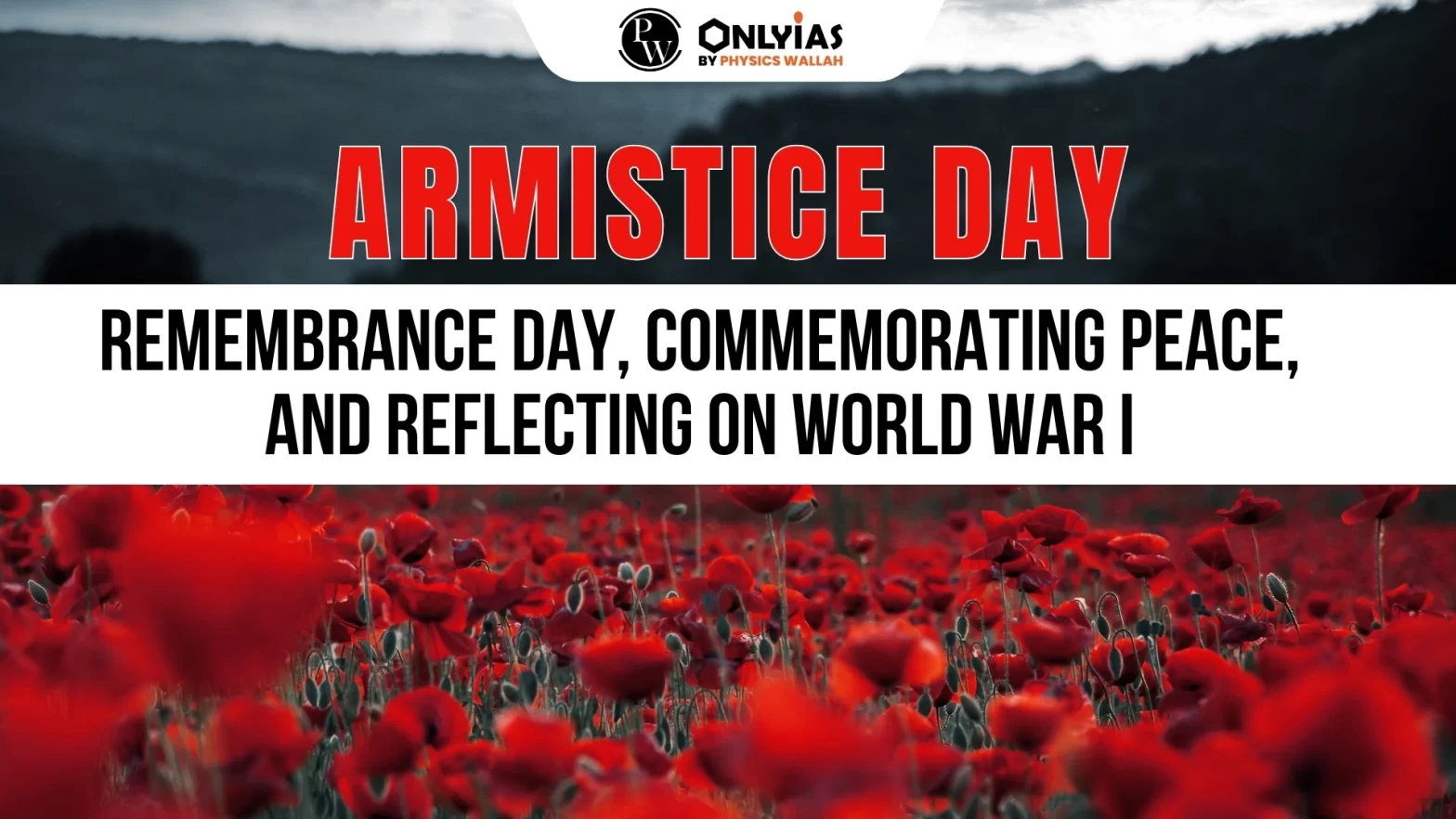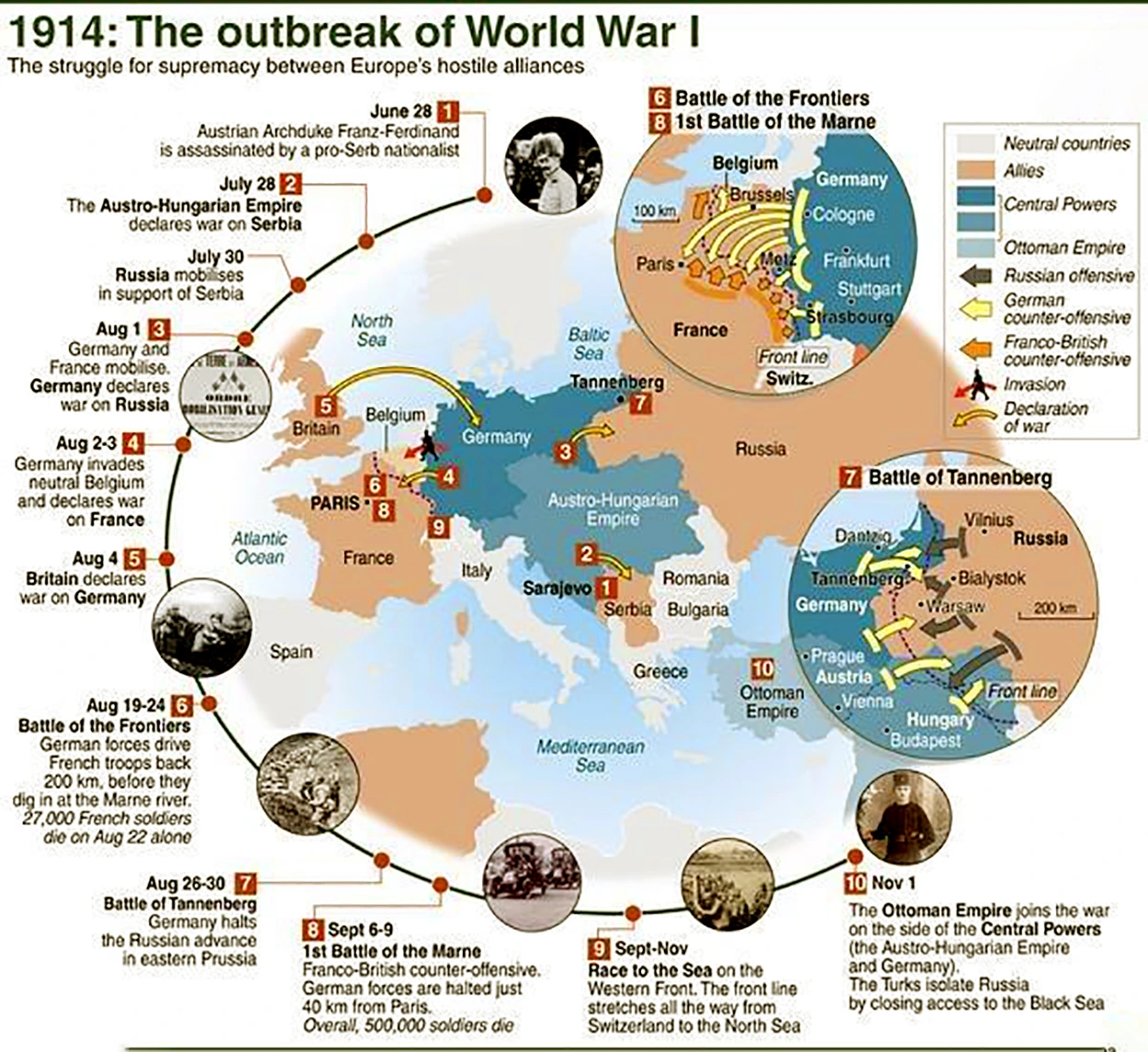Context: Armistice Day is celebrated on 11th November every year.


The Armistice Day or the Remembrance Day is an occasion for remembering the dead military personnel as well as civilians, who laid down their lives for the purpose of establishing peace.
| Must Read | |
| NCERT Notes For UPSC | UPSC Daily Current Affairs |
| UPSC Blogs | UPSC Daily Editorials |
| Daily Current Affairs Quiz | Daily Main Answer Writing |
| UPSC Mains Previous Year Papers | UPSC Test Series 2024 |
The Armistice Day was an agreement to end the fighting of the First World War and acted as a prelude to peace negotiations.
Armistice Day is celebrated on 11th November every year in the United Kingdom.
Commonwealth Countries: Among the Commonwealth countries, Canada was the first to name Remembrance Day, which was subsequently followed by other nations of Commonwealth. United States: The United States changed the name to All Veterans Day in 1954, which was later shortened to 'Veterans Day'. France: In France, the holiday is known as Remembrance Day (Jour du Souvenir). Belgium: The day is known as Armistice Day (Jour de l'Armistice) in Belgium. Serbia: Since Serbian forces suffered the largest casualty rate in World War I, the day is a statutory holiday. Poland: The day in Poland is observed as National Independence Day, a public holiday to commemorate the anniversary of the restoration of Poland's sovereignty.
It is celebrated to mark the armistice signed between Germany and Allies of World War I at Compiègne, France in 1918.
World War I pitted Russia, Belgium, France, Great Britain and Serbia against Germany and Austria-Hungary.
The Treaty of Versailles, which was signed in 1919 at the Palace of Versailles in Paris, marked the end of World War I.

<div class="new-fform">
</div>